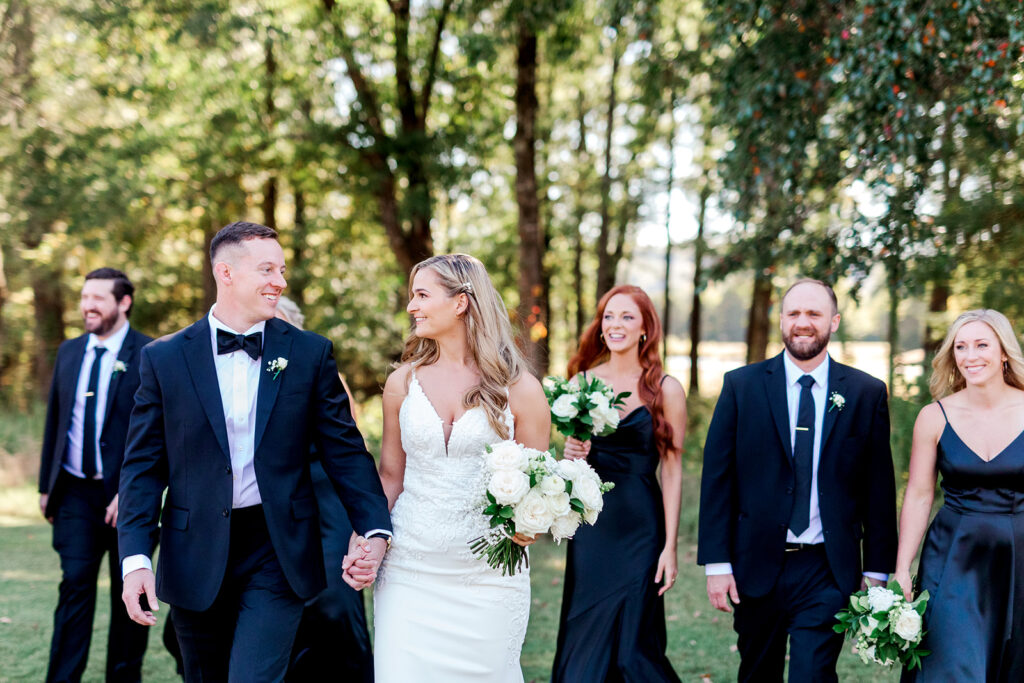One of the benefits of weddings in the south is that we have months and months of perfect weather for outdoor weddings. If you are living somewhere that is blessed to have a range of outdoor wedding venues or outdoor wedding locations, from ocean views and countryside to harbor parks and more, you can plan the best day of your life at a venue to suit your personal style.
There is plenty to consider when it comes to an outdoor wedding. Depending on the location, outdoor events can be a budget-friendly alternative to hiring an indoor venue. Some couples will opt to hold an outdoor wedding ceremony only, whereas others will host the wedding outdoors in its entirety. An outdoor event means that you’ve got to think about from the wedding photojournalism that you choose, and whether or not you provide your guests with umbrellas, light blankets, or fans and flip-flops depending on the weather that day. There is plenty to consider, so let’s take a look at the top considerations when you are hosting an outdoor wedding.
- Check if you need a permit if you are looking for a public space that is not a traditional venue. Probably not the most exciting consideration when it comes to an outdoor wedding, but you may need to have a permit for the day if you want to use a public space. Whether you’re planning to get married on the beach with the sand between your toes or you want to get married in a famous National Park, most outdoor locations will require you to have a permit so that you are allowed to use the space without interruption. Contact the relevant local government or the council before you set your heart on a venue, and don’t forget to ask about things like restrictions or conditions. Balloons and sparklers may be prohibited, and some places may not let you set off confetti cannons. You don’t want to get cited for breaking the rules in the middle of your wedding day.
- The weather. This is a very obvious thing to consider, but the weather can be very unpredictable. You could be planning for a summer wedding in the middle of June and find that you’re in the middle of a rainstorm. You need to make sure that you have backup options in place, so that means hiring companies to cover the area with tents or making sure that you have fans in the marquee that you have set up. In the unlikely but not impossible event that you are hit with a freak rainstorm, you need to make sure that you have wedding insurance to back you up in case you have to change your date.
- Don’t forget a Plan B. A back up plan to an outdoor wedding is not an option, it’s a must. You need to make sure that your wedding day can quickly be changed over and you can use a different venue that you have also booked in advance. Nobody wants to spend money twice on their wedding venue if they don’t have to, but consider the option if you don’t. You could get washed out or you could end up with a venue that is halfway across the field because a hurricane is taking it with it.
